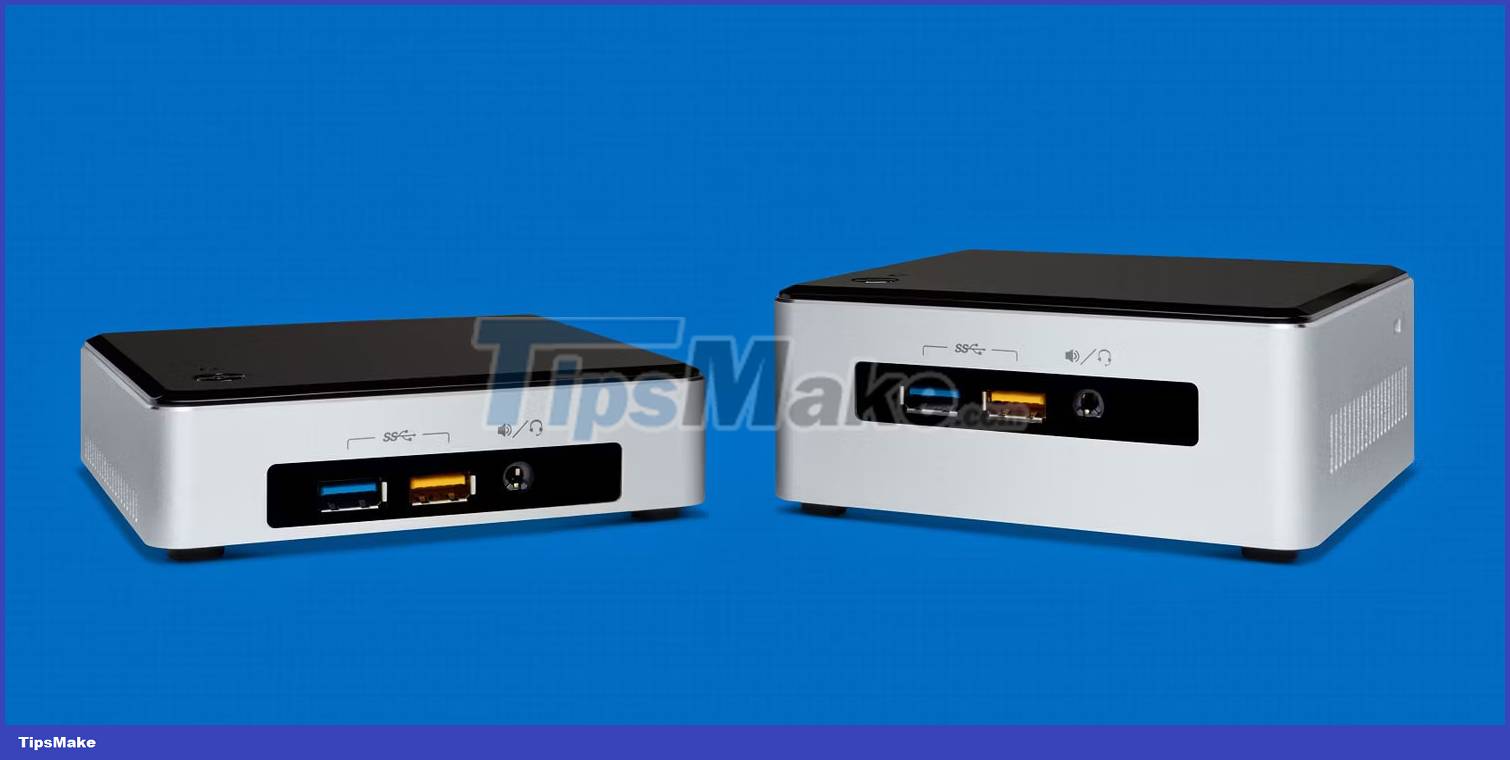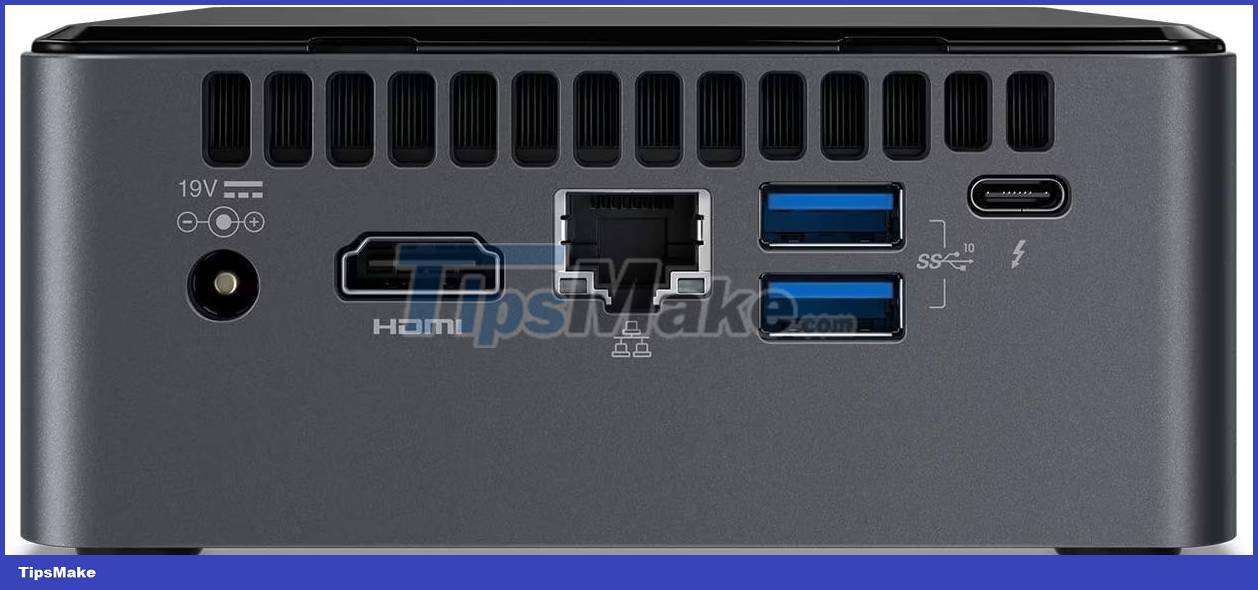Difference between NUC and SBC
While NUCs, or mini PCs in general, were created to replace portable desktop computers, single-board computers are typically designed to act as drivers in embedded systems. There may be similarities between these types of computers, but there are also key differences that we will explore in detail later in the article.
What is NUC?

Short for Next Unit of Computing, the NUC is a series of small, compact computers with minimal dimensions and designed to be assembled by the user after purchase. The first NUC was based on the Sandy Bridge line of Intel processors and was released in early 2013. There have been 12 generations and millions of NUC units sold since then.
NUC systems offer surprising power and convenience in complete, compact systems that you can hold in your hand. NUC products come in a variety of sizes, from 4 x 4 mini PCs to significantly larger gaming NUCs. This article will focus on small NUCs.
What is a single board computer?

A single-board computer (abbreviated as SBC) is a complete computer, with the processor, RAM, storage and many other components integrated on a single board. The most popular single-board computers by far are the Raspberry Pi series, with the Raspberry Pi 4 Model B being the newest and most powerful model.
Single-board computers are known for their affordability, portability, and many input/output features they offer. This makes them perfect for home automation, robotics, edge computing and electronics projects.
Basically, a single board computer can do everything the NUC is capable of doing, up to a certain point. However, NUCs are often limited in many aspects that are important to tinkerers, namely access to GPIO pins, along with higher price and power consumption.
What characteristics do they have in common?

Generally speaking, NUCs and SBCs are the only two types of computers that are designed for specific, different purposes, but due to their computing nature, there are often similarities between the use cases of both devices.
For example, the Raspberry Pi 4 Model B is often described as a desktop replacement and can use the GPIO interface on some Intel NUC devices.
Additionally, both the single-board PC and the Intel NUC are designed to be portable enough to be portable. However, you'll need to use an external keyboard, mouse, and monitor, and connect any other peripherals you need.
Comparing NUC and SBC
Price

NUCs are usually a lot more expensive than the average single-board computer. They also provide more power, which can be advantageous in most cases. It's important to note that NUCs and mini PCs in general are often made with portability and modularity in mind rather than price.
While single-board computers come in a wide range of prices, from very cheap like the Raspberry Pi Zero to very expensive like the Khadas Edge2, they offer a lot of benefits and are a better choice if you're primarily concerned with price. .
Power consumption
While NUCs are typically very power efficient compared to most desktops and laptops, they can't match the efficiency of ARM-based single-board computers. The Raspberry Pi 4 Model B will typically use 5 times less power at full load, compared to a standard Intel NUC.
It can be argued that these single board computers are also less powerful, but it can still be asserted that if power consumption is a major concern for you, then you are better off using a computer. single bo.
Expansion options and input/output

NUCs and SBCs are relatively even when it comes to the scalability options they offer. Depending on the model, you'll find both the NUC and the SBC have expansion slots that allow you to add specialized hardware components like graphics cards, storage drives, or network cards.
Both types of computers also often provide multiple USB ports, allowing for connecting peripherals such as keyboards, mice, and external hard drives. Other interfaces such as Ethernet, HDMI and DisplayPort over USB are commonly found on both the NUC and the SBC. In general, the scalability of a NUC or an SBC depends on the specific model you choose.
However, the General-Purpose Input/Output (GPIO) interface on most single-board computers is what makes them stand out from the NUCs. This header typically contains a row of 26 or 40 pins that serve different functions and connect the Raspberry Pi or other SBC to the real world, whether it's sensors, LEDs, motors, or other electronic components. .
Customizability

The customization aspect is where the Intel NUC shines. This is because they allow you to add your own RAM and storage while SBCs require you to work with a fixed amount of memory. This means you can always upgrade your NUC to fit your project's requirements, unlike single-board computers where the RAM is soldered to the board.
Use cases
If you're deciding between NUC and SBC, it's important to consider what you're going to use it for. NUCs generally offer more processing power and have better graphics cards than single-board computers. They are better suited for tasks that can use multiple processors, such as gaming, transcoding, hosting, and video editing.
On the other hand, the Raspberry Pi 4 Model B SBC is a comprehensive tool for physical computing. It's cheap, compact, and powerful enough for most electronics projects. In addition to the official documentation, beginners will find many tutorials online on how to use this single board computer.
Basically, if you're looking for a portable and modular alternative to your desktop, the NUC is the right choice. They are relatively powerful, energy efficient, and offer a lot of customization possibilities.
However, assuming you are more interested in electronics and want to use GPIO connectors in your projects, then in that case a single board computer is a better choice for you. They provide more scalability, can be connected to other peripherals and components for physical computation. Be sure to check out TipsMake.com's guide to the best projects you can make with your Raspberry Pi.
So should you choose NUC or SBC?
As always, the answer will depend on your budget, style, and project. NUC definitely has the edge over SBC in terms of customizability and performance. If you're interested in streaming, emulation, or other processor-intensive tasks, the NUC will be right for you. However, if you want everything to work in code, a single board computer or a microcontroller will be what you should go for.